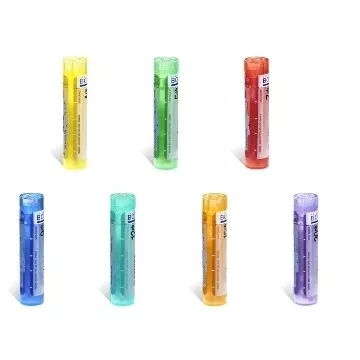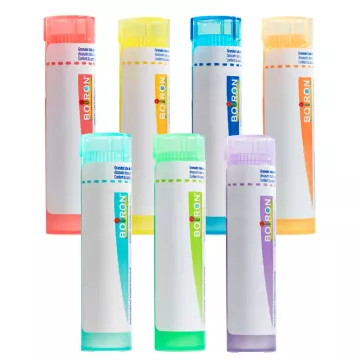What is a sneeze and how does it happen?
A sneeze is an involuntary, explosive reaction of the respiratory system. This phenomenon is triggered when the nasal mucous membranes are irritated by particles such as dust, pollen or even a viral infection like the common cold. The process begins with stimulation of the sensory nerves in the nose, which sends a signal to the brain. The brain then responds by activating muscles in the face, throat and chest, causing a rapid and powerful expulsion of air from the lungs, which helps to clear the airways of irritants.
What are the common causes of sneezing?
The causes of sneezing vary widely, including:
- Allergies: Common allergens such as pollen, dust mites, pet dander and mold can trigger sneezing.
- Infections: Viral infections like the common cold or flu are frequent triggers.
- Irritating particles: Smoke, air pollution and strong perfumes can irritate the nostrils.
- Bright light: Some people sneeze in response to sudden exposure to bright light, a phenomenon known as the photic reflex.
How can I reduce the frequency of sneezing?
To minimize sneezing, we recommend :
- Avoid allergens: Stay indoors on high-pollination days and use air purifiers to reduce allergens in the home.
- Maintain good hygiene: Frequent hand washing can help prevent infections that cause sneezing.
- Use masks: Wearing a mask can help filter out irritating particles and pathogens.
- Regular cleaning: Regular vacuuming and dusting can reduce the presence of allergens in your environment.
What treatments are available for frequent sneezing?
Treatment for frequent sneezing depends on the cause:
- Antihistamines: Effective in controlling sneezing caused by allergies.
- Decongestants: Can relieve nasal congestion and reduce sneezing associated with infections.
- Nasal sprays: Nasal corticosteroids are often recommended for long-term use in the treatment of nasal allergies.
How can I tell the difference between a sneeze caused by allergies and one caused by a cold?
To distinguish an allergic sneeze from one caused by a cold, observe the associated symptoms and their duration :
- Allergies: Sneezing is often accompanied by an itchy nose, red and watery eyes, and bursts of sneezing. These symptoms may last as long as exposure to the allergen persists.
- Cold: Symptoms include sneezing, but also a blocked nose, sore throat and sometimes fever. These symptoms usually resolve within a week to ten days.
Can sneezing be a sign of serious medical conditions?
Although generally benign, frequent sneezing can sometimes signal more serious problems:
- Severe allergic conditions: such as allergic rhinitis or asthma.
- Respiratory infections: such as influenza or COVID-19, especially if accompanied by fever and body aches.
- Nasal structural problems: such as a deviated septum. Consult a doctor if your sneezing is persistent or accompanied by other worrying symptoms.
Are there any natural remedies for sneezing?
Several natural remedies can help reduce the frequency of sneezing:
- Chamomile: This herb has anti-inflammatory properties and can relieve allergy symptoms.
- Honey: Eating local honey can help immunize against regional allergens.
- Steam: Inhaling steam can help soothe irritated mucous membranes and clear nasal passages. These remedies can be used in addition to traditional treatments, but it is advisable to consult a health professional before trying them.
When should I consult a doctor about frequent sneezing?
Consult a doctor if :
- Sneezing disrupts your daily life: Affecting sleep, work or social activities.
- Associated symptoms: Such as severe congestion, headaches, or loss of sense of smell.
- No improvement with usual treatments: If usual remedies don't work, or if symptoms worsen.
Can sneezing be prevented?
Although sometimes unavoidable, certain measures can reduce the frequency of sneezing:
- Avoid known triggers: Stay away from known allergens and irritants as much as possible.
- Improve indoor air quality: Use air purifiers and maintain good ventilation in living spaces.
- Adopt good hygiene: Wash your hands regularly and practice respiratory etiquette by covering your mouth and nose when sneezing to prevent the spread of germs.

